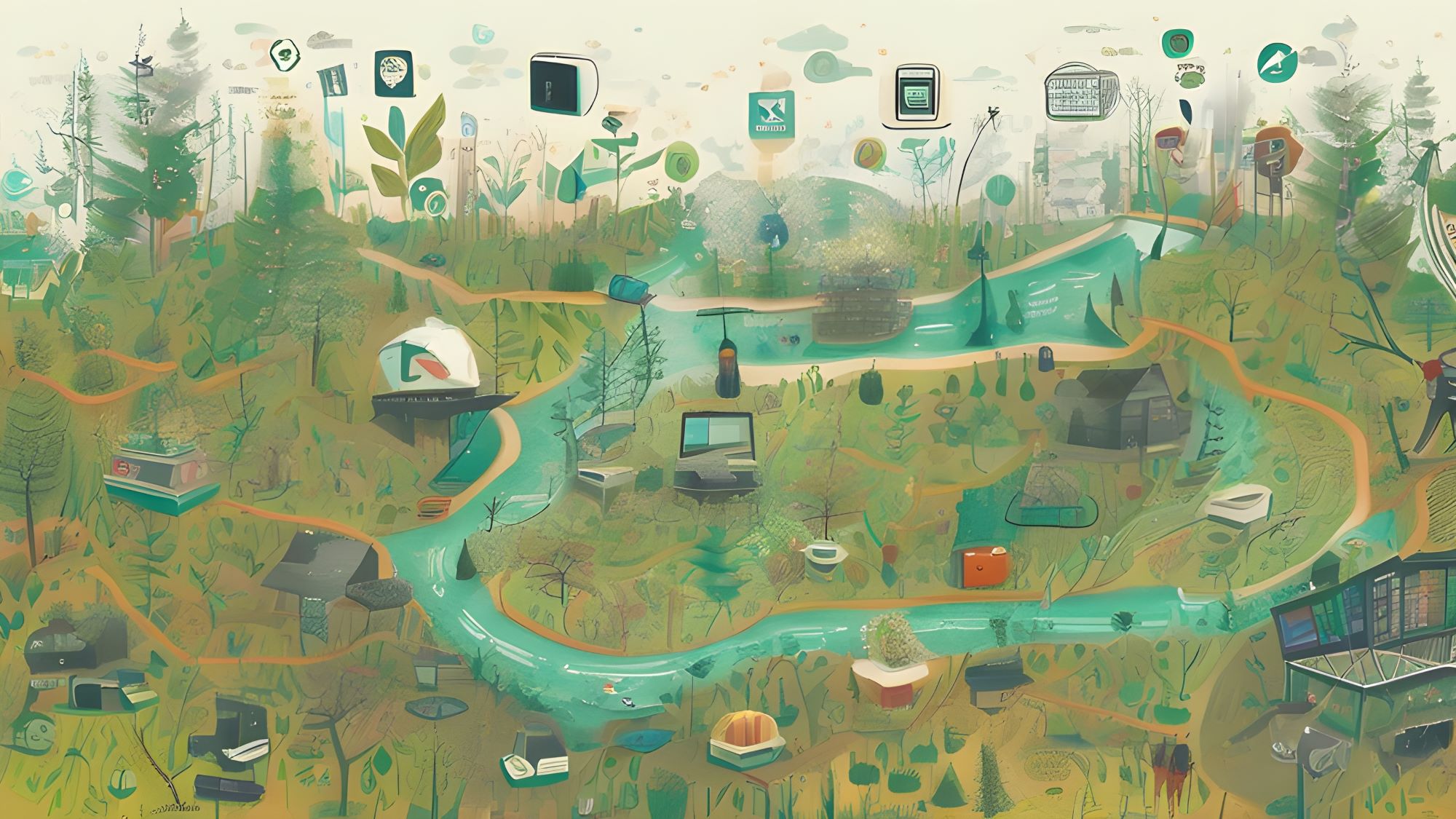In today’s computing age, the internet serves as the backbone of modern society, connecting individuals, facilitating communication, and driving innovation. However, beneath its surface lies a landscape fraught with challenges, from monopolization and censorship to privacy concerns and inequality. As we navigate the complexities of the digital realm, it’s crucial to recognize the importance of preserving its ecological balance. The concept of rewilding, often associated with restoring natural habitats, holds profound relevance in the context of the internet. Just as we strive to protect and restore biodiversity in the physical world, so too must we undertake efforts to rewild the internet.
Table of Contents
ToggleEmbracing Change in the Digital Landscape
The internet, once celebrated for its vastness and diversity, has gradually succumbed to a landscape dominated by a few powerful entities. This monopolization not only stifles innovation but also undermines the fundamental principles of accessibility and inclusivity. By embracing the ethos of rewilding, we can cultivate a digitalized ecosystem that thrives on diversity and resilience. Initiatives such as decentralization, open-source software, and community-driven platforms play a crucial role in breaking down monopolies and fostering a more equitable cyber landscape.
Rediscovering Diversity in Online Spaces
Diversity lies at the heart of a healthy ecosystem, whether natural or animated. By nurturing a diverse array of platforms, voices, and perspectives, we can foster a more inclusive online environment. From independent blogs and grassroots forums to decentralized social networks, every contribution enriches the landscape, enhancing its vibrancy and relevance. Moreover, diversity not only promotes innovation but also strengthens resilience, ensuring that the internet remains robust in the face of unforeseen challenges.
Fostering Collaboration for a Thriving Digital Future
Collaboration lies at the core of rewilding efforts, both in the natural world and in the computer-based sphere. By transcending individual interests and working towards common goals, we can unleash the collective potential of the internet. Open-source initiatives, collaborative platforms, and knowledge-sharing networks serve as catalysts for innovation, driving positive change and progress. By fostering a culture of collaboration and knowledge exchange, we can harness the power of collective intelligence to address complex issues and drive meaningful impact.
Championing Sustainability in Digital Practices
Sustainability isn’t just a buzzword; it’s a guiding principle for safeguarding the future of our digitalized ecosystem. From energy-efficient data centers to eco-friendly design practices, every decision we make shapes the environmental impact of the internet. By prioritizing sustainability in our cryptographic practices, we can minimize our carbon footprint and create a more resilient online infrastructure. Additionally, sustainable digital practices go hand in hand with ethical considerations, ensuring that our actions have a positive impact on both the environment and society at large.
Empowering Digital Literacy and Accessibility
Access to information is a fundamental human right, yet millions around the world still lack reliable internet access. By investing in digital literacy programs and expanding access to underserved communities, we can bridge the cipher divide and ensure equal opportunities for all. Empowering individuals with the skills and resources to navigate the digital landscape is key to building a more inclusive and equitable internet. Moreover, cyberliteracy not only enhances access to information but also promotes critical thinking and empowers individuals to participate actively in computing discourse.
Protecting Digital Rights and Privacy
As the internet evolves, so too do the challenges surrounding computing rights and privacy. From data breaches to online surveillance, individuals are increasingly vulnerable to exploitation and manipulation. By advocating for strong data protection laws and empowering users to take control of their online privacy, we can safeguard the integrity of the internet and protect the rights of all users. Moreover, promoting digital rights and privacy not only enhances trust and confidence in online platforms but also fosters a culture of transparency and accountability.
Conclusion: Pioneering a New Era of Digital Conservation
The time to rewild the internet is now. By championing diversity, fostering collaboration, prioritizing sustainability, empowering cyber literacy, and protecting cyber rights, we can pave the way for a more equitable and inclusive computing future. Let us heed the call to action and become stewards of the computing landscape, ensuring that the internet remains a thriving ecosystem for generations to come.













+ There are no comments
Add yours